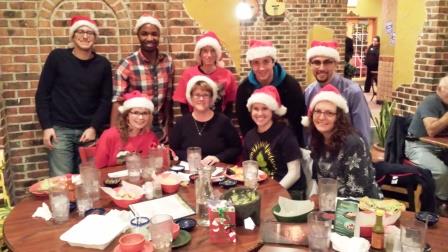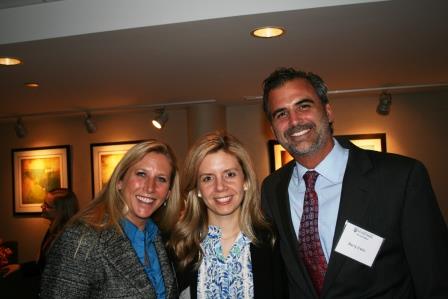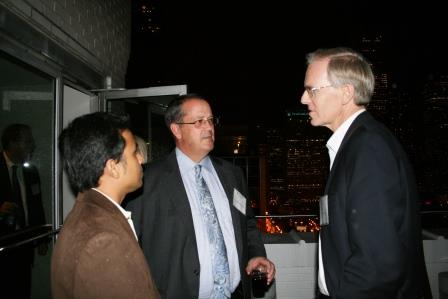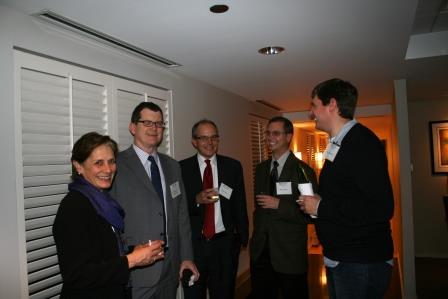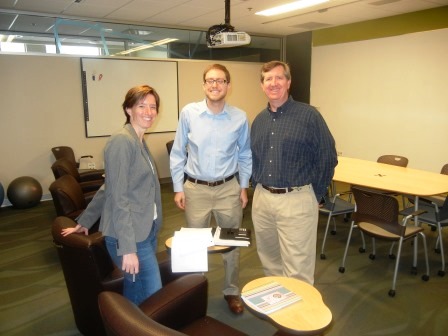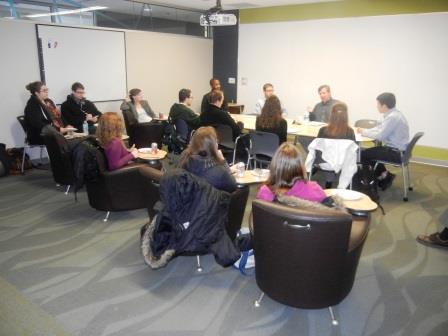School has been cancelled yesterday afternoon and today — we’re having an unusually cold and snowy winter.
Given that class was cancelled yesterday, but also taking into consideration that our professor for Patent Prosecution had driven all the way from Cleveland to teach, we held a virtual class meeting using Google hangouts. It was quite successful, actually! Cindy (the prof) did a great job, and I think it was a good exercise in conference-call and video-conference etiquette for our students. They learned that they need to be more responsive and demonstrative than they would normally be in class, since the prof is not able to read their comprehension as clearly as if in-person.
And, possibly the biggest upside of holding the class virtually is that we don’t have to hassle with scheduling a makeup!
